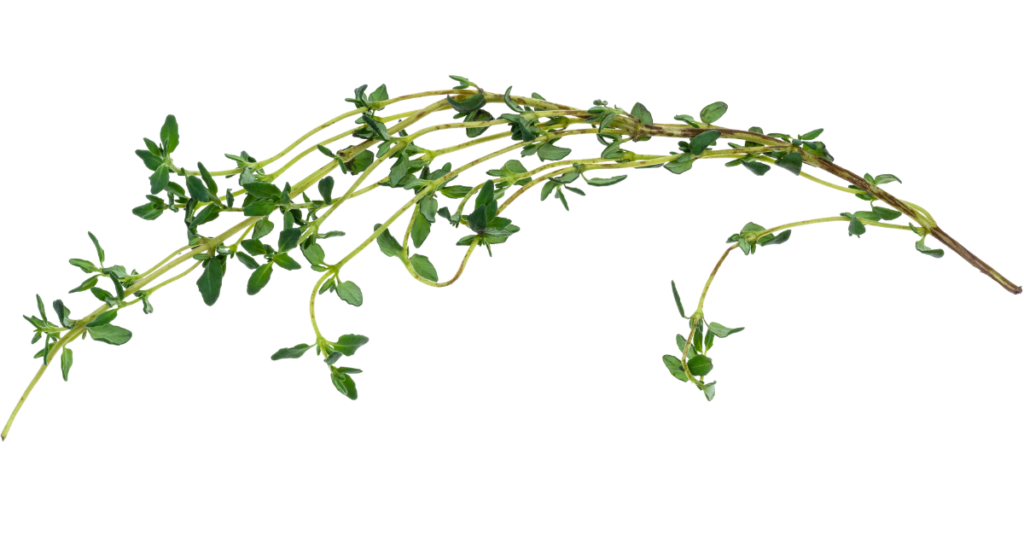Thyme (Thymus vulgaris)
Neumann, the German apothecary, isolated the essential oil of thyme in 1725, and it is still used as an antiseptic to this day.
Although thyme leaves are a common kitchen herb, the essential oil of thyme is toxic if taken internally in large quantities.
Other names: Common thyme, garden thyme, tomillo.
Description and the places it grows in
Aromatic shrub grown in temperate countries in Northern Europe.
Parts used
Leaves and flowers collected in the summer.
Uses
Antiseptic, antispasmodic, tonic, carminative, bactericidal, bitter, aromatic, expectorant.
Coughs, sore throats, and infected gums; used in a gargle or mouthwash.
Digestion: Gas, diarrhoea, incontinence, colic. Excellent due to its antispasmodic effect on smooth muscle.
Rheumatic pains: Thyme oil added to bath or a massage blend can bring great relief to pain.
Constituents
Thymol, carvacrol, terpenoids, glycosides of phenolic monoterpenoids, eugenol aliphatic alcohols.
Contraindications
Do not use during pregnancy. The oil is toxic if taken internally and will induce vomiting.


